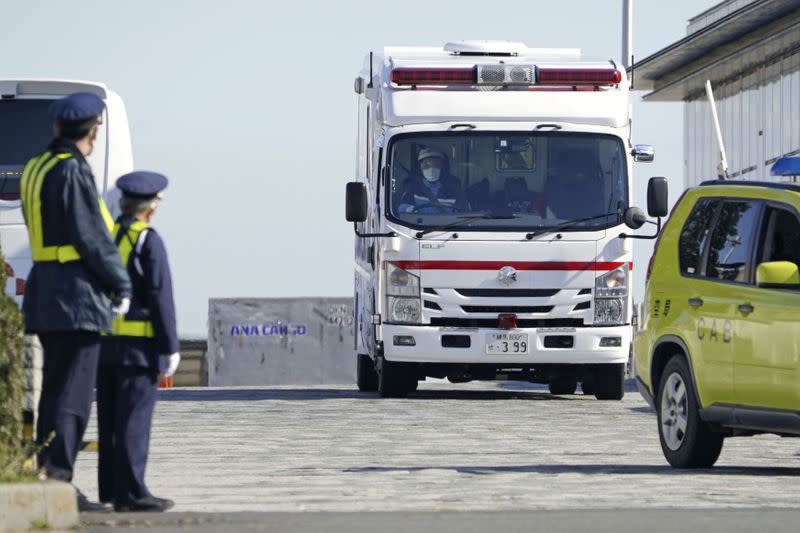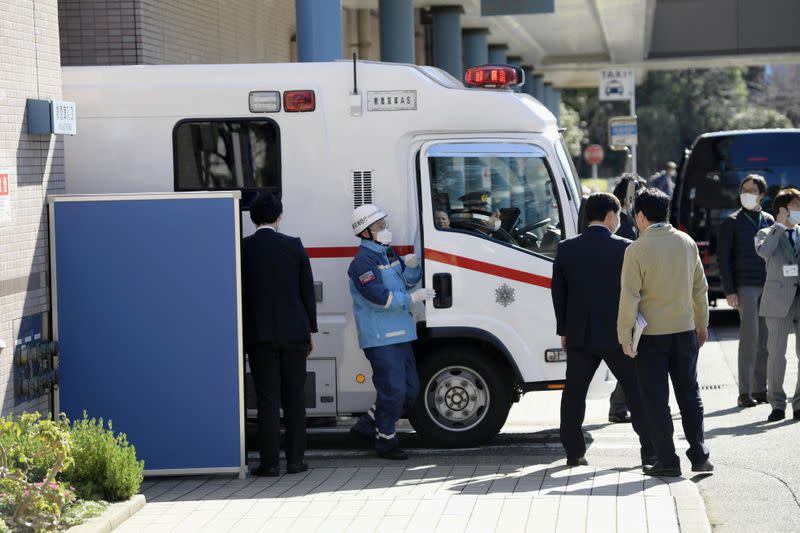Three Japanese evacuees from Wuhan test positive for virus, two had no symptoms
By Chang-Ran Kim and Linda Sieg
TOKYO (Reuters) - Two of three Japanese people evacuated from China and found to be infected with a new coronavirus had not shown symptoms, the health ministry said on Thursday, adding to worries about the fast-spreading virus and its economic fallout.
The three cases were among 206 Japanese people who were evacuated to Tokyo on Wednesday from the Chinese city of Wuhan, the epicentre of the epidemic that has killed 170 people in China and infected nearly 8,000.
While the vast majority of cases have been in China, more than 100 cases have also appeared in about 15 other countries. Later on Thursday, a Chinese man in his 50s, who had previously stayed in Wuhan, was found be infected in the western prefecture of Mie, Kyodo news agency reported.
A Chinese woman in her 20s, who had previously stayed in Wuhan and was studying in Kyoto, was also found to be infected, broadcaster NHK said.
That brought the total number of cases in Japan to 13 including the three evacuees.
The two people who were confirmed as infected but had not shown symptoms were the first such cases in Japan, though suspicion has been rising elsewhere that people who have the virus but no symptoms can infect others.
That would make the virus much more difficult to control.
Japan on Tuesday classified the virus a "designated infectious disease", which would allow compulsory hospitalisation and the use of public funds for treatment.
But the designation - which takes effect on Feb. 7 after ordinances are issued - does not apply to people without symptoms.
Asked about concern over transmission of the virus from people who have not shown symptoms, a health ministry official said it was not clear whether that had happened.
Shigeru Omi, head of the Japan Community Health Care Organization, told a briefing that there were reports of such transmissions in China.
Chinese National Health Commission Minister Ma Xiaowei said this week the virus was infectious during incubation, which can range from one to 14 days.
A second charter flight carrying 210 Japanese nationals arrived in Tokyo on Thursday. Chief Cabinet Secretary Yoshihide Suga said 13 of them felt unwell.
IMPACT WORSE THAN SARS?
Prime Minister Shinzo Abe, inaugurating a task force to deal with the virus, said the government would take all steps to prevent its spread, including tracking and checking people who had been in Wuhan.
Among Japan's cases was a tour bus driver who was infected after coming into contact with Chinese visitors.
Bank of Japan Deputy Governor Masayoshi Amamiya speaking to investors, said the impact of the virus would depended on its spread but China's global presence was greater than when Severe Acute Respiratory Syndrome (SARS), which also originated in China, killed nearly 800 people globally in 2002 and 2003.
ANA Holdings, Japan's biggest carrier, said its bookings for flights from China in February fell by half, while those for flights to China plunged 60%.
"The concern is of the impact that the situation could have on China's economy and the knock on that will have on things like air cargo," ANA Executive Vice President Ichiro Fukuzawa told a news conference after the release of quarterly earnings.
Moody's rating service said the economic risk to China's neighbours was likely to be greater than from SARS.
(Reporting by Chang-Ran Kim, Ami Miyazaki and Kiyoshi Takenaka, Ju-min Park, Naomi Tajitsu, Tim Kelly, Tetsushi Kajimoto, Elaine Lies and David Dolan; Writing by Linda Sieg; Editing by Sam Holmes, Robert Birsel and Alex Richardson)



